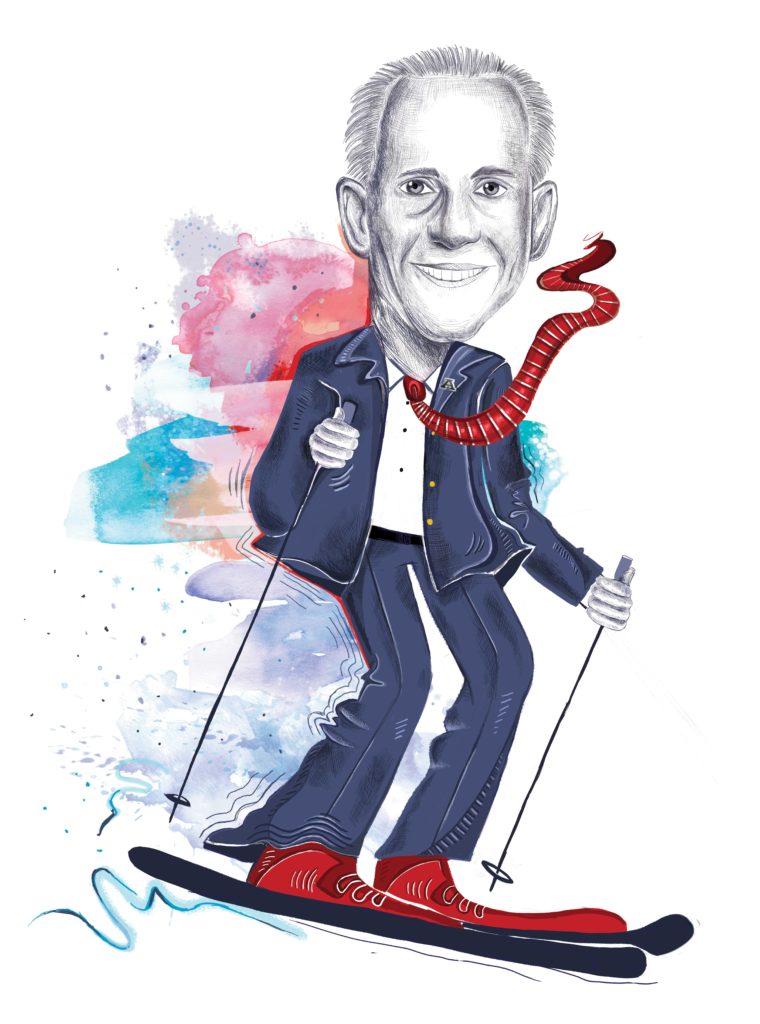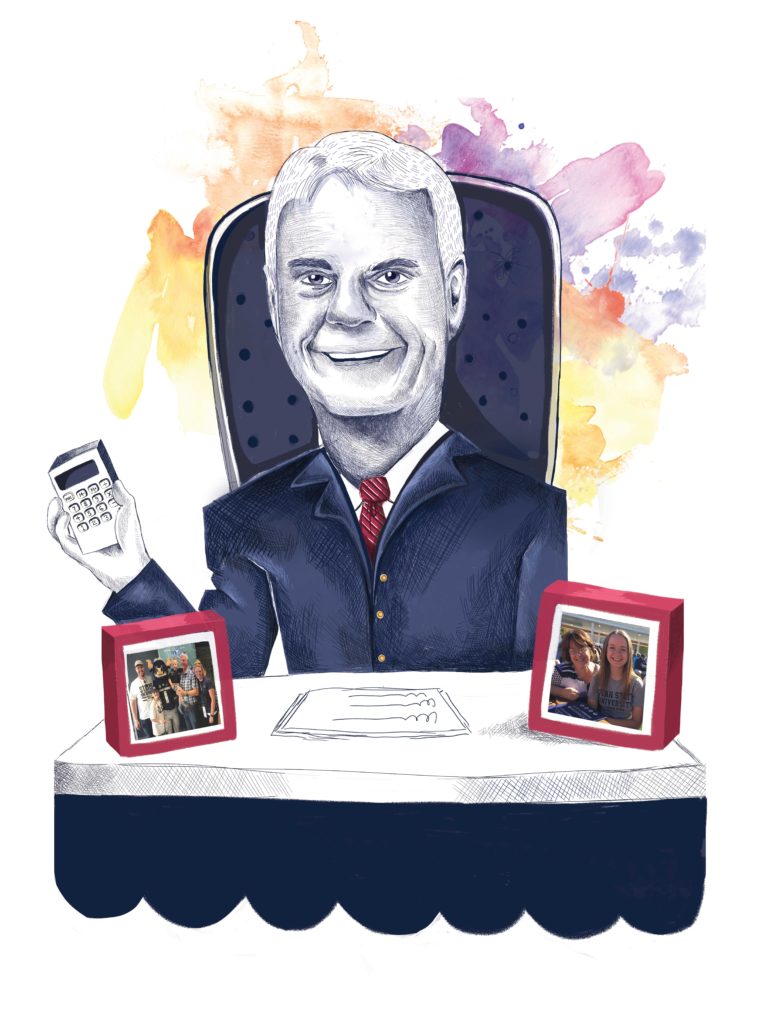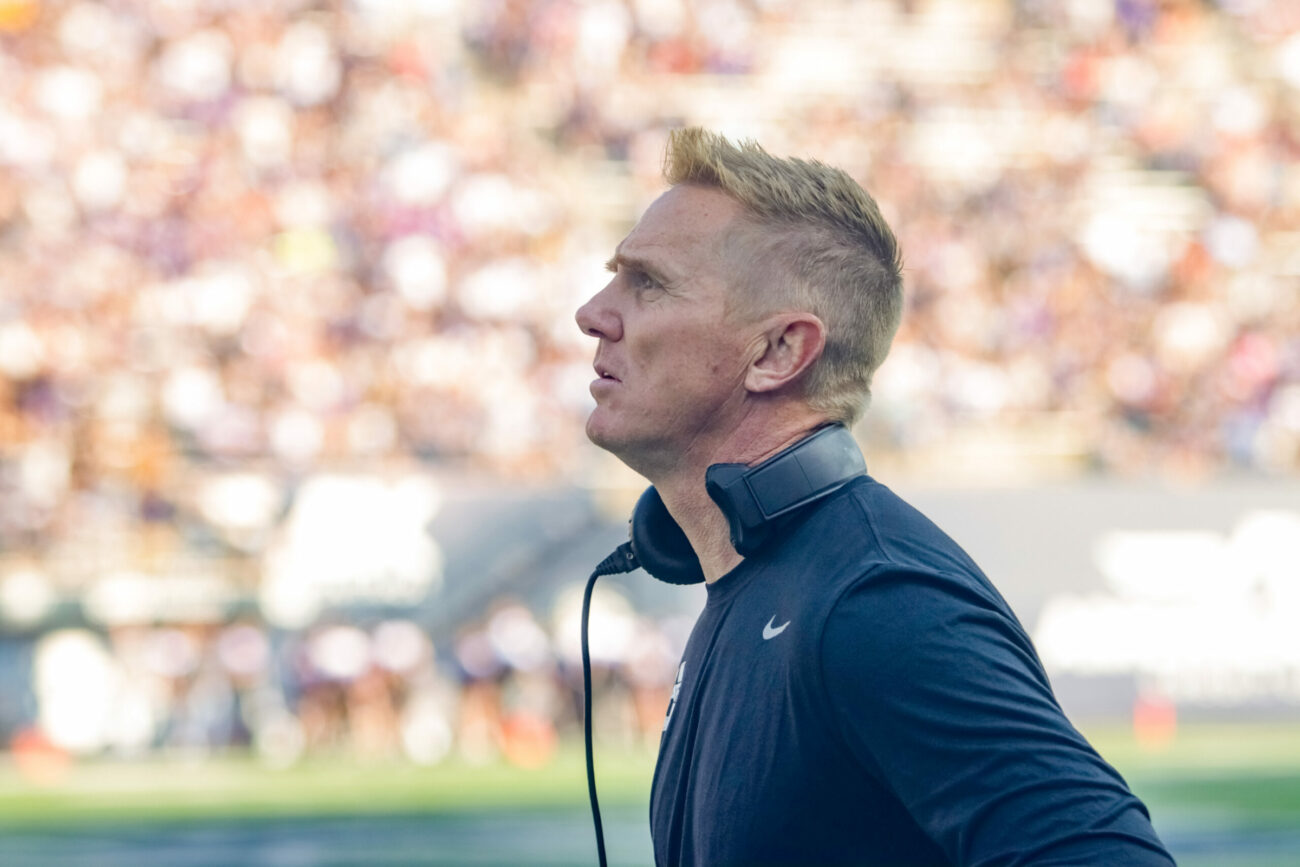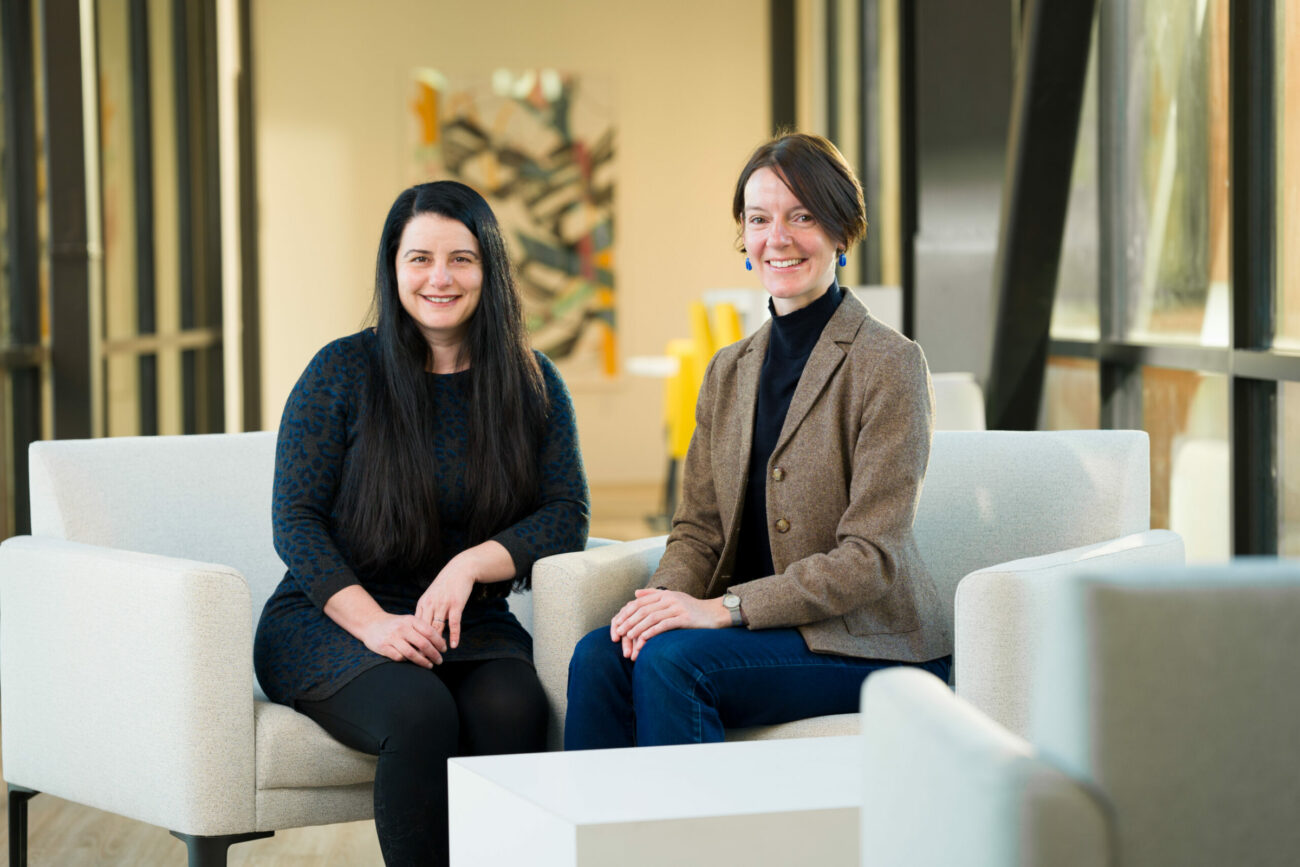Thank You, Mr. Presidents

Brent Hill ‘73 was first appointed to the Idaho state senate on Christmas eve in 2001 and has served as president pro tem for the last eight years.
Wayne Niederhauser ‘84, MS ‘85 has served Utah’s district 9 since 2006 and as senate president for the last six years.
Neil Abercrombie, USU’s vice president of government relations, ‘02, MS ‘08, recently spoke with both legislators about how public service can enhance one’s life.
Q. What advice would you give people who are not involved in politics?
Brent Hill: I knew that government affected our lives on an everyday basis, but I didn’t realize until I got into the legislature, particularly how much state law affects us. It deals with licensing, with crime and punishment, public education, insurance. The federal government seems to get most of the publicity, but as far as our day to day lives, just driving our cars down the road, a lot of that is governed by state law.
I never decided at an early age “hey I want to be in the Idaho state senate.” I think that most people evolved into that position, mostly through service in other ways. There are ample opportunities to serve your community and the more you serve, the greater your yearning is to serve. Regardless of where service takes you, it’s going to take you in a good place. As far as why [be more politically engaged]—because it affects us every day. How can you go out and fulfill your patriotic duty to vote if you are not staying up with the various candidates, what the parties represent, and what the issues are?
Wayne Niederhauser: A lot of people are sometimes very critical about the direction of policy and it’s always my encouragement for people to get involved. Hand out fliers in an election. Get on the planning commission at the city. Run for office—city council, legislature. The more people we have who get involved, the more the system will work the way it was intended to work. And today there are so many ways for people to get involved and not just be on the sidelines being critical or upset about what’s going on.
Q. What are one or two major issues facing your state?
WN: A lot of companies relocate to Utah, especially tech companies, investing millions of dollars in infrastructure facilities, and they want to know that they are going to have a pipeline of employees for many years to come. I believe that we need to focus more on making sure that people are trained and educated for the workforce needs of the future. And that’s different than what it’s been in the past. That means our institutions of higher education, our technical colleges, are going to need to change to meet those demands. And we’ve got to do it as efficiently as possible. I think a huge barrier is the increasing cost of education. So we need to sit down, put our heads together, and figure out how we are going to make that happen, and create the alignment to insure that we have some of the highest quality jobs available to our children and grandchildren.
The other big challenge we face is infrastructure. Utah has spent billions of dollars, even funneling money out of education and into roads over the last 20 years to make that happen, and we are not keeping up. Congestion is worse than it’s ever been. It’s probably a good challenge to have—it means we are growing. We will double in population in the Wasatch Front over the next 30-40 years. Think about the impacts on our recreational assets and our cultural assets. We are going to have to expand all of these and it’s going to take a lot of money.
BH: I would second that [about education and infrastructure]. I am an accountant so I like to follow the money. And if you follow the money in the state, the largest expenditure by far out of the general fund of both Idaho and Utah is public education. So, making that more efficient, more effective to provide the workforce as Senator Niederhauser describes, is essential if you are going to attract businesses to our states. There are so many other expenditures that would be mitigated if we give the attention that we need to public education. For example, our welfare system—much of it is the result of people not having sufficient education to get the jobs they need to support themselves and their families—and our prison systems would be relieved of some pressure if people were well-educated and could become good members of society for the benefit of themselves and those who depend on them.

Illustration of Wayne Niederhauser, senate president for the state of Utah from 2012-18, by Arielle Trenk.
Q. President Hill, what are a couple of priorities for you moving forward?
BH: One priority important to me ever since I got in the legislature is to help people gain a greater trust in their government. If we are going to gain the trust of the public we need to be accountable, we need to be transparent, we need to have integrity. Every political scandal, regardless of where it is or at what level, is a bad reflection on all of us who are public servants and who are in this for the right reasons. It includes civility so people can see that we are trying to set the example in the way we treat one another. I hope that when I leave [office] people feel better about their state government than they did 15 years ago.
In the meantime, in Idaho, we put together a five-year plan for public education as well as funding and career ladders for teachers. It has helped us to avoid conflict as we talk about education issues and has greatly enhanced our education system here. We need to keep that going. A few years ago, Utah confronted the religious liberties and the LGBTQ discrimination issues head on. We are working diligently in Idaho to try to come up with a balanced approach that will help prevent discrimination against people of faith as well as people with a different sexual orientation or identity. I’m anxious to see how we can hopefully emulate Utah in some ways and maybe improve upon it.
Q. President Niederhauser, you retire in January. What is something you have learned and something that you are really proud to have accomplished during your tenure in office?
WN: There are three p’s to being in office: procedure, politics, and policy. I love policy and I love procedure. I tolerate politics. You can’t get away from that, but I’ve tried to minimize that over the years, tried to make sure the process works well, that it’s transparent, that people are included, and that we are addressing policy in a way that is beneficial to the state. Again, that’s an ideal. We haven’t always been perfect in that objective, but it has been a goal of ours as the leadership in the senate, including the minority leadership.
A couple of things that I think have been some of the hallmarks for me have been tax reform. I was the sponsor of the tax reform of 2007 and then led some additional tax reform over the last six years. I don’t think there is much we need to change going forward, except we have got to figure out how we are going to pay for the infrastructure that is needed for the growth ahead. I also had a play in SB 136 that was passed last year, working to make sure we have the policy necessary to incentivize the use of transit. Because we are not going to keep up by building more roads, transit is going to be a big issue, especially in Salt Lake, Davis, and Utah counties. … I focus a lot on Cottonwood Canyon because of the congestion we have on ski days. We are set on a course that will handle, I believe, the traffic and the demands for several decades to come. I felt like I got where I wanted to get on a number of these policies and now it is primetime to bow out and let somebody fill those shoes.

Illustration of Brent Hill at his desk in the Idaho state senate by Arielle Trenk.
Q. How would your colleagues in the senate describe your leadership style?
BH: I try to emulate—and that doesn’t mean that I’ve gotten there—George Washington. He is my hero when it comes to leadership style. He led forcefully, but compassionately. I feel like every senator represents his or her own district and they are accountable to the people that elected them. I will try to persuade, I will try to influence, I will make my case, but I don’t use my leadership position to twist arms. I don’t make threats. I don’t hold things over people’s heads. That’s doesn’t always get the short term results that people want, but I believe building those relationships and treating people with that kind of respect gives you the long-term results.
WN: Two words: measured and inclusive. The senate is more of a deliberative body, and I capitalize on that. I feel like we need to measure twice and cut once—make sure the policy is good. We have 29 senators—5 of them are democrats. We have the ability to make any issue coming from our democratic body irrelevant, but we choose not to do that. We choose to include 29 senators in the process. We work to help get bills passed from the democrats in our body. They join with us in our press conference every day and we try to work together as one body. There are issues that separate the two parties, but there are very few of those bills during the year.
Q. What comes to mind first when you hear Utah State University?
BH: I now have a fourth generation, our granddaughter, who is attending Utah State, so obviously I have very fond feelings about USU. The phrase that comes to mind is: an excellent education. I come down and talk to student groups from time to time and assure them that the education they are receiving is top quality. It will prepare them if they go on to graduate school—no matter where they go, if they go into jobs—no matter where work. When I was at Utah State I came out of my shyness and found some wonderful associates and professors who really cared. It helped build my confidence so that I could go out from there and enjoy greater success in my career as well as in public service.
WN: Well certainly I agree completely with president Hill on the quality of education you get at USU, but when I think of USU, I think of the many years I have lived, breathed, and loved USU athletics. My dad was a dyed-in-the-wool Aggie fan. He went to Utah State. He was the first in his family to go college. I grew up in that atmosphere. I went to almost every basketball game and football game when I was a teenager and in my youth. So even when they haven’t been performing well in one area of athletics, I have still been on the sidelines cheering for the team to win. My wife graduated from USU, too. USU is the place where we met and courted and got married and had our first child. We became very connected to what happens at USU.
Q. President Niederhauser, what are you doing to do on your first day off?
WN: The first day that will likely create any sort of nostalgia is the first day of the legislative session. I will probably go and participate in the opening ceremony. After that, I am going to spend a little more time at Snowbird. I have a season pass. I have a locker. And a bus pass to get up the canyon. I am going to spend a little more time skiing this winter.






